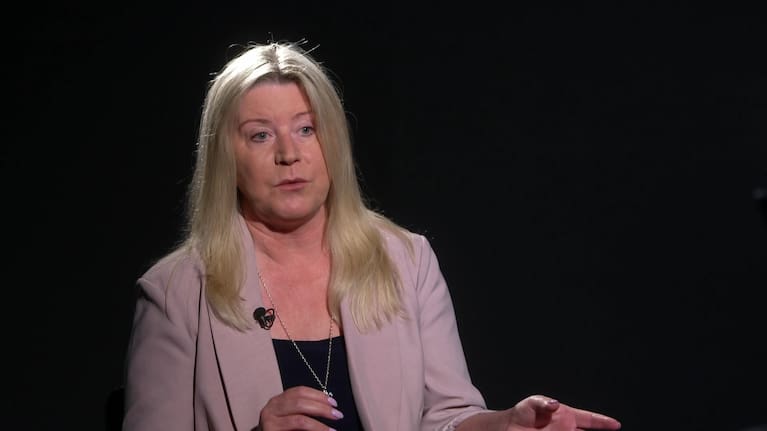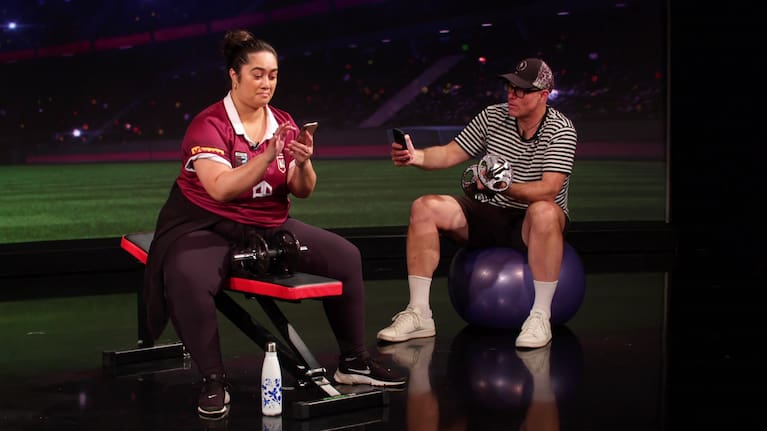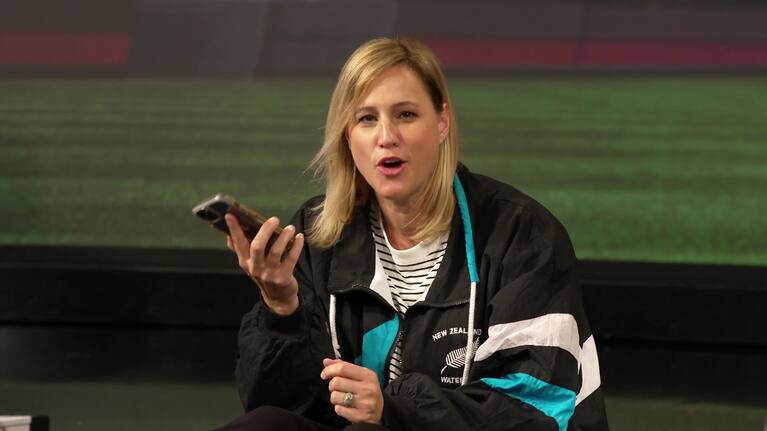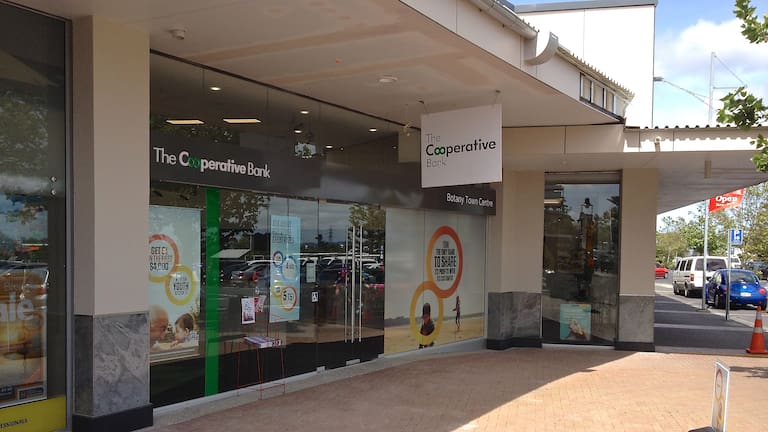"Let's stop blaming just the customers." That's the challenge from independent scam investigator Bronwyn Groot, who said in some cases banks are failing to prevent scams.
"If I was to send money to you, I have no way of guaranteeing that's actually your bank account," she said.
Those payments could be for a TradeMe or Facebook Marketplace purchase, a plumber's bill, a holiday house rental, school fees, or a host of other reasons we make what are called interbank payments.
Payments NZ, which governs the system, told Fair Go "the capability to offer bank account name and number matching (payee and payer verification) doesn’t yet exist within our current interbank payments system".
Groot said from the people that come to her, seeking help to recover money lost in scams, that lack of matching is a huge loophole.
Groot said if banks close that loophole, "it would be huge, it would be so big".
"This morning, I talked to a new victim and they lost over $400,000 and if that account name account number matching was in, it wouldn't have happened, they wouldn't have lost the money - it didn't go overseas it was only going to a New Zealand mule account name did not match the account number."
Of course if it were easily done, it might have already happened.
"Name to number matching is a complex issue, impacting customer privacy and account name practices," said NZ Banking Association chief executive Roger Beaumont.

Beaumont said one way would see a system than makes an account name pop up automatically when you enter an account number online.
"If it was an investment/romance scam, the scammer would likely have an appropriate name for the account (e.g. Generic investment company) or an explanation for the account name, so the customer may not see a problem and the payment would likely proceed."
Another option would be to require the account name to be correct before a transaction can proceed.
"Bank account names can be very random (think flat accounts) and this would likely prevent many legitimate transactions from proceeding. It may require many account names to be changed in order to assist the process," said Beaumont.
Groot thinks it might be worth the trouble.
"I'd much rather have a bit of pain and that transaction be delayed than sending you the money in half an hour and it goes to the wrong account and then, I have to go through a huge amount of pain, that the bank then says is not their fault."
What's more, with the move this year to seven-day payments, money is moving faster than ever. Great if you're trying to pay people on time; greater peril if it's a scammer or fraudster who's taken or received your funds.
"Money is transferring really, really fast and the sooner you get in touch with your bank and let them know, then they can freeze those funds, potentially," said Groot, who spoke from decades of experience working in banking and finance.
Those decades have seen huge changes in retail banking - from queuing in a bank to see a teller, to queuing on hold to get someone to answer.

"Branches are being closed down, [customers] can't go into a branch and talk to front line staff, so they're having to wait on those contact centres or wait for someone to ring them back and it's not good enough in my opinion," said Groot.
Call Centre Olympics
The Fair Go team put that to the test - by attempting to call each of the five major retail banks at the same time on the number to call if you want to deal with a potential scam loss.
Call centres in other industries like insurance have told Fair Go Monday is often a busy day but typically more so in the morning. Fair Go called banks just before 2pm on a Monday in July and timed their response to what could be a very worrying issue for a customer
"You're stressed right, you're panicking, you know that something potential is happening with your bank account your money, and you want to talk to someone and get it sorted, whatever's going through your mind. You also want to ring Police, as well as other people," Groot said, based on her experience helping scam victims who turn to her for help trying to recover money they have lost.
Results were spread out - from 30 seconds almost 30 minutes to get a human on the line.
ASB answered the call after just 36 seconds to take gold in the Fair Go Call Centre Olympics.
An ASB spokesperson said the bank is pleased with the 'win' which it attributes partly to a new mobile app.
"More than 28,000 customers have digitally responded to card fraud alerts since we launched the tool in April 2022, allowing our contact centre and fraud teams more time to focus on complex scam situations," their statement read.
Kiwibank's call centre human picked up after 93 seconds, after a warning calls could take 40 minutes to answer.
BNZ answered after nine minutes 10 seconds and a BNZ spokesperson later responded: "We have added 30 new staff to our call centre in the last month, with 20 already in action and 10 joining the queue from next week. This has significantly improved our call centre's average response time, which has been under three minutes for the past three weeks."
ANZ kept our reporter on hold for 16 minutes 58 seconds, after an automated message advising wait times of 20 minutes.
"Like most call centres we acknowledge our wait times are not always where we want them to be, our average speed to answer for general banking enquiries in July was around eight minutes and reducing (this week our average time is 4.2 minutes)," ANZ's statement read. General banking operations would include more than just calls about scams.
Westpac had the longest wait time; 25 minutes 24 seconds, which it said was not typical.

"The longest wait time for the day was experienced between 1.30pm-2.30pm where customers were waiting up to 30 minutes, which coincided with Fair Go conducting their trial," said Mike Norfolk, Westpac general manager for consumer banking and wealth.
The average time it took for a customer’s call to be answered that day was five minutes.
“We continue to urge customers who believe they have been scammed to contact us using the number on our website, and our team will assist as soon as possible.”
Bronwyn Groot added that victims need to tell the call centre exactly what has happened.
"Be upfront, be honest, walk the bank through exactly what's happened. Don't try and hide stuff."
But victims should also make sure they are dealing with a genuine call centre - do what the bank doesn't do with payments - check independently that the number to call matches the right name.
"If anybody rings you and is pretending to be from the bank, the banks are not going to ask you for your password or your PIN or your two-factor authentication, so that's a biggie," she warned.
From her perspective, helping victims recover high-value losses, far more could be done by banks and law enforcement to prevent scams hitting victims.
"It's an easy crime for an offender.. they're just sitting back laughing, 'woo-hoo, look at New Zealand, let's target them in the middle of the night.'
"It's not that guy in a hoodie stuck in his little room; these are organised crime rings that are well documented overseas. If we are just going to let them get away that's just crazy."




















SHARE ME